Hot Water Systems Newcastle
Is your hot water system playing up?
Contact Murphy Plumbing and we’ll be around to fix it. We operate throughout the Central Coast and Hunter regions—including Newcastle, Maitland, Merewether, Lake Macquarie and the Hunter Valley.
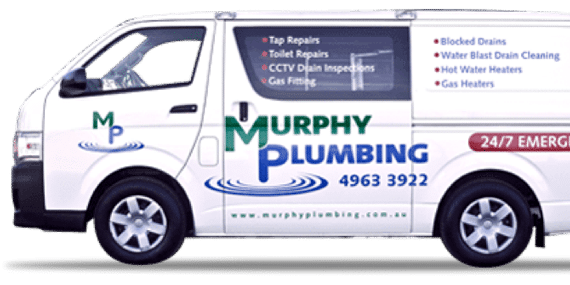
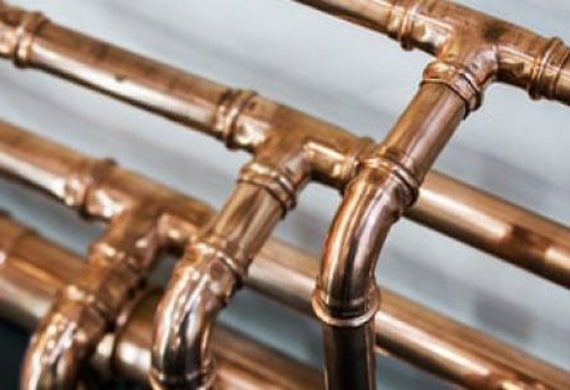
Hot Water System Installation Experts
Our licensed plumbers are all qualified gasfitters and have experience working on all types of hot water heaters. From servicing and repairs to all new installations, our team works quickly and efficiently. Our mobile units are equipped with spare parts and tools so we can get the job done on the spot. If, your system is beyond repair, or it would be more cost-effective to replace it, we can organise to have a new one installed immediately.
Our Brands
We supply and install a large range of hot water systems including major brands such as Rheem, Billy, Reece and Plumbers Co-op. Ask our knowledgeable plumbers for their advice—we are more than happy to assist in your selection and offer competitive pricing.
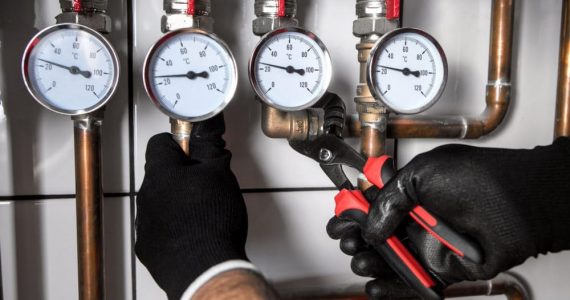
Let's talk
Get in touch to book a hot water system installation or repair service. We can repair or replace your current system. Call Murphy Plumbing on (02) 4963 3922 today.
Types of Hot Water Systems
There are several hot water systems to choose from when replacing an old system or building a new house. Knowing the differences is important to picking the right option for your home. Here at Murphy Plumbing, we are the experts in all kinds of hot water systems in Newcastle and can help you choose which one works best for your needs. We can then install it and maintain it for you. Here are the most common types of systems.
Heat Pump Hot Water System
Instead of using coils or natural gas to heat your water, this kind of system pulls heat from the ground or the air. It’s an electric system that works well in warm climates, but not as well in cooler locations. This model is much more energy efficient than many other options, but sometimes requires more space than other kinds of hot water systems.
Solar Hot Water System
By using the energy from the sun, this kind of hot water system absorbs the heat and transfers it to the coils inside the system so it can heat your water. It’s ideal in sunny places and can save you a lot of money on your energy bills, especially in the summertime. This system is more expensive than others and may not work well if it’s not sunny outside.
Gas Hot Water System
A gas water heater is a water heating system where the main fuel used is gas. There are two main types of gas water heaters: gas continuous flow and gas hot water storage tanks.
Electric Hot Water Systems
This is the most common kind of hot water system and consists of a tank that is insulated and that stores your hot water. You can then use it from the faucets in your house when you need it. This kind of hot water system requires regular maintenance and is one of the lowest cost options out there. A tankless hot water system is great because it heats water on demand, using water filled coils. This system usually costs more up front but is more energy efficient and can save you money in the long run. This system is ideal for large families but should be serviced once a year for optimal performance.
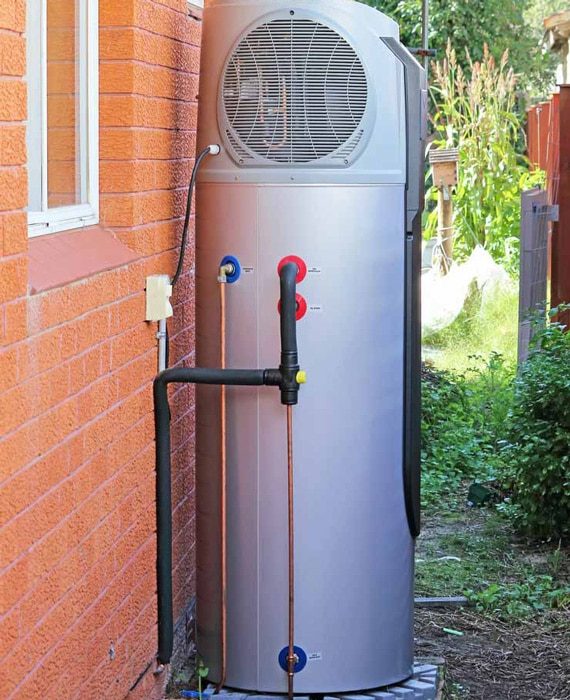
Heat Pump Hot Water Systems
The unique ECH2O thermal store is expertly engineered to mitigate bacteria and keep your tank disinfected.
This compact design comes with a complete set of accessible controls, putting you back in the driving seat when it comes to providing your home with efficient hot water.
By choosing renewable energy, you can watch your energy savings soar.
Solar Hot Water Systems
Our ergonomic solar hot water systems may seem like a steep upfront cost, but these systems are not only built sustainably with the protection of our environment in mind.
They’re also built to save you money on your utility bills in the future.
A top-quality system will be significantly less costly to run than a conventional system in the long term.
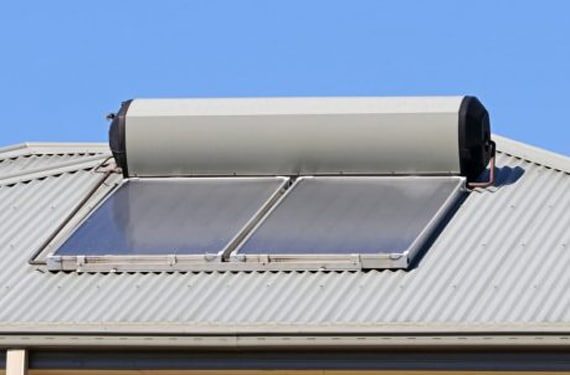
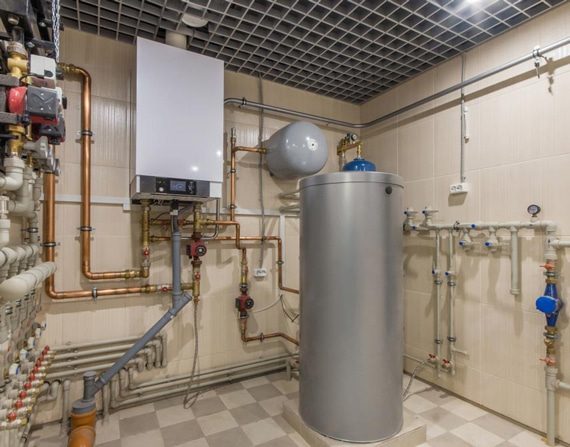
Gas Hot Water Systems
Unlike older models, our gas hot water systems are designed to give you more control over your gas use, improving energy efficiency and cost savings.
Our models will only use gas on-demand, so there will be no cost when your hot water system is not in use.
It can be costly to run your gas hot water system on LPG gas bottles and there are far more affordable alternatives to choose from now.
When installed by our expert engineers, you know you can trust the safe connection of your gas lines.
Electric Hot Water Systems
Murphy Plumbing only stocks electric hot water systems that are manufactured with the highest quality components and materials to ensure the efficiency and safety of your home or property.
We understand how important it is to be able to trust your hot water system, which is why our trained engineers will always be here to answer queries and deliver a bespoke installation for you.
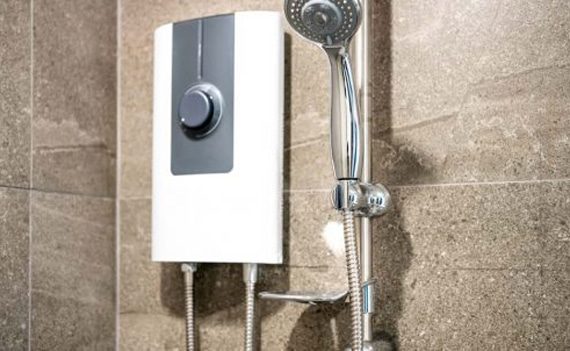
FAQs
How long does a hot water system typically last?
Hot water systems typically have a lifespan between 8 to 20 years. Gas hot water systems last between 8-12 years, electric hot water systems last between 10-15 years, solar hot water systems have a life expectancy of 10 years and heat pump hot water systems can last for 15 years. With regular maintenance, the life of your hot water system can be extended.
What are the signs of a failing hot water system?
There are several signs to look out for that might indicate your hot water system is failing. One clear sign is when water starts to leak from the heating tank. This usually necessitates a replacement of the water heater. The age of your water heater can also be a factor. Older units are more susceptible to failure, so it’s important to keep that in mind.
Another sign of a failing hot water system is if you notice that your hot water supply is depleting faster than usual. This could be due to sediment accumulation in the tank, which reduces the space available for hot water. Similarly, if you’re experiencing inconsistent water temperatures, your hot water system might be failing. This could be due to issues with the thermostat or heating elements.
Lastly, if the water coming from your taps is discoloured, appearing rusty or murky, it could be a sign of a failing hot water system. This happens when the protective coating inside the water heater tank wears thin over time, allowing rust to form quickly and leading to discoloured water.
How often should I have my hot water system serviced?
How often your service your hot water system depends on several factors including the type of system, its age and the quality of local water. However, as a general rule, it’s recommended to have your hot water system serviced by a professional at least once every 1-2 years. Regular servicing can help identify potential issues early, prolong the lifespan of the system and ensure your system is operating at peak efficiency.
Can you upgrade my existing hot water system?
Absolutely! At Murphy Plumbing, we provide an extensive selection of hot water systems from leading brands such as Rheem, Billy, Reece and Plumbers Co-op. Our licensed plumbers are experienced in servicing and installing all types of hot water systems. If your current system is beyond repair, or it would be more cost-effective to replace it, we can organise to have a new one installed immediately.
Are tankless hot water systems worth the investment?
Tankless hot water systems, also known as on-demand systems, heat water as it’s needed rather than storing hot water in a tank. While these systems typically cost more upfront, they can be more energy-efficient and could save you money in the long run. They are ideal for large families but should be serviced annually for optimal performance.
What is the ideal temperature for my hot water system?
It is generally recommended that the water temperature in your hot water system is stored at above 60°C. This is a safe temperature which is hot enough to kill harmful bacteria in the water, but a tempering valve will ensure that water comes out of your taps at a lower temperature.
Does the size of my hot water system matter?
Yes, the size of your hot water system is important. It needs to be big enough to meet the heating needs of your household. If it’s too small, you may run out of hot water more frequently. On the other hand, if it’s too large, you might be wasting energy heating more water than you need.
Is it cheaper to repair or replace my hot water system?
The answer to this question can depend on several factors, including the age and condition of your current system, the cost of the needed repairs and the potential energy savings of a new system. In general, if your hot water system is old and frequently needs repairs, it may be more cost-effective in the long run to replace it with a newer, more energy-efficient model.
